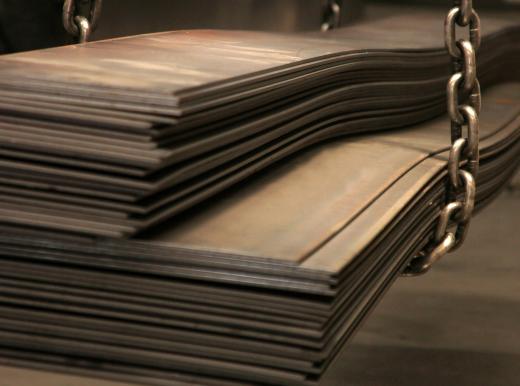When choosing screws, it is most important to match the type of screws purchased to the type of project being undertaken as most types of screw are designed for specific applications. The material used in the manufacture and coating of screws must be considered as it impacts both the finished appearance of the screws and their resistance to harsh conditions. Some screws, such as drywall screws, can be used for a variety of projects, while others, such as self-tapping screws, are very useful for certain applications, but largely unsuitable for all other tasks.
Wood screws and drywall screws are among the most common types of screw. Both can be used for most tasks that involve fastening something to a piece of wood. Wood screws, which have a sharp point and a relatively broad shaft, generally require a small guide hole, while drywall screws, which are narrower and have coarser threads, are designed to be used without any pre-drilling, especially when used to hang drywall. Wood screws are generally slightly more expensive, but also more attractive, and are better suited to projects that are intended to look good. Drywall screws are excellent for quick and dirty shop and utility carpentry.

Different types of screws are appropriate for fastening metal surfaces together. Sheet metal screws are commonly used to hold metal in place. They have narrow threads designed to grip metal effectively as well as flat heads which rest flush against a sheet of metal and hold it securely. Self-tapping screws are a variety of sheet metal screw and include a point that is designed to drill a hole for the screw. These screws are commonly used to fasten softer metals, such as iron or aluminum.

Machine screws, which resemble small bolts, lack a sharp point. Like other types of screws designed to hold metal together, these screws have narrowly-spaced threads. Unlike sheet metal screws, however, these screws are designed to grip either a nut or a threaded sleeve of some sort. Machine screws are commonly used in small mechanical devices, and are often needed as replacements for parts that have worked themselves loose from small engines or other devices.

Other types of screws are designed for very specific situations. Some screws have hooks or ovals mounted on them, and are designed to provide hanging or mounting points when sunk into a base material. Still other screws are designed with shafts that expand when tightened, and are designed to hold materials in place in masonry or through sheets of drywall.

In all cases, it is important to select screws made of material that is designed for use in the area where a project will be situated. Outdoor projects should be held together with stainless steel screws or one of several types of screws that have been treated to resist moisture. Other screws will rapidly rust. Stainless steel screws are quite expensive, however, and are typically too expensive for smaller inside construction projects.
